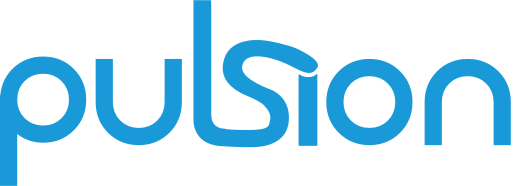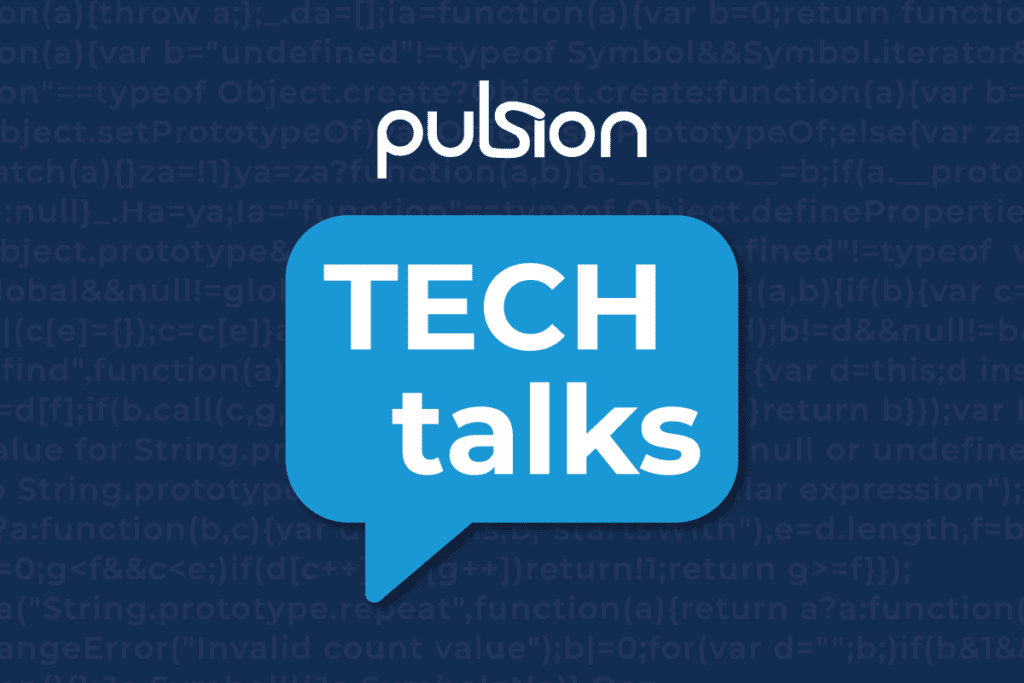Hire Dedicated PHP Developers
Engage Pulsion’s expert PHP developers, skilled in crafting dynamic websites and applications tailored to your business vision, ensuring swift, feature-rich development.




What Is PHP Development?
PHP programmers use a hypertext preprocessor or widely used open-source scripting language to write the code for web applications, mobile applications, and hybrid applications.
PHP development projects work on a versatile platform and run on various web servers and operating systems. It’s ideal for cross-platform development and has robust capabilities.
PHP also provides simple database integration with MySQL and has the following applications:
- Server-side scripting language applications
- Command line scripting language applications
- Writing desktop applications with a graphical user interface
Choose Pulsion and Hire a Dedicated PHP Developer Today
Engage Our Experts and Hire PHP Developers for Tailored Web and Mobile Solutions
Expert PHP developers are pivotal to the success of bespoke software projects. At Pulsion Technology, we specialise in leveraging PHP to deliver dynamic, secure, and scalable web solutions.
Our hiring models are versatile, and designed to seamlessly integrate with your project requirements, whether you need full-time dedicated support, part-time expertise, or immediate on-demand assistance. Explore our PHP development services to enhance your web and mobile applications.
The Ultimate Advantages of Hiring Dedicated PHP Programmers
PHP web developers or mobile-friendly PHP programmers bring numerous advantages to your software development project, web application, or mobile app with the famous backend programming language.
The best PHP developers work closely with you to stack backend technologies suitable for your business goals or project requirements, without breaking the bank.
Server-side applications become affordable and deploy faster with a simple PHP framework. Also, the PHP development team constantly updates the language code to remain relevant and competitive.
What Are the General Advantages of PHP Development?
PHP programmers lend you advantages in the code, including:
- Cloud-server compatibility for your software
- Affordable cloud hosting services
- Embedded HTML programming
- Increased loading speeds for users
- Extensive documentation for technical specifications
- Access to PHP communities

Dedicated PHP Developer Hiring Models at Pulsion
Also, we offer three dedicated developer hiring models to meet your business needs. Our well-versed developers tackle any difficult task with a clear idea of what the business wants or needs.
Option 1. Extended Team Augmentation Model
Our premier PHP development hiring strategy enables you to supplement your in-house team with PHP experts, catering to needs that extend beyond your team’s current proficiency.
When to choose this kind of extended team model
- When you need to hire dedicated developers for a temporary skills infusion.
- When you have intensive short-term projects that don’t warrant adding permanent staff.
- When you need to use a specific programming language that your in-house team isn’t familiar with.
2. Project-Based Dedicated Development Model
Our second engagement model offers the opportunity to hire dedicated PHP developers to manage your entire project as an outsourced PHP team, an approach that seamlessly accommodates various time zones.
When to choose this project development model
- When you have a well-defined project, with identified timelines, milestones and end goals.
- When you need to keep costs fixed – you’ll typically pay a flat rate per project.
- When the project requires a dedicated developers team that you don’t have time to manage yourself.
3. Full Managed Team Model
A fully managed team from Pulsion allows you to engage a PHP developer team to operate within your business environment. This model grants direct access to our developers and a dedicated project manager.
Our committed digital consultants will assemble a team tailored to your specific requirements for PHP-based projects, encompassing specialists in user experience (UX) design, user interface (UI) development, and full-stack development, ensuring a comprehensive solution tailored to your project’s needs.
When to the choose the dedicated team model
- When you have a large or complex project that requires a diverse range of skills and designations.
- When you don’t have the in-house software developers or skills to take on the project.
- When you need a dedicated project manager in addition to the actual development and don’t want to divert internal resources, or don’t have any development managers.
How To Tell If You Need to Hire a Dedicated PHP Developer
When it comes to PHP development, identifying the right time to engage dedicated PHP developers is crucial for seamless project execution and achieving your digital goals. Here’s how to identify when it’s time to bring expert PHP developers on board:
- Addressing Skill Gaps in PHP Development: If your in-house team lacks specialised PHP expertise for creating or enhancing your website, it’s a clear sign to hire dedicated PHP professionals. This ensures your project is in knowledgeable hands, avoiding the steep learning curve and potential missteps of non-specialists.
- Long-Term PHP Projects: For ongoing PHP initiatives where committing to full-time in-house roles isn’t viable, dedicated PHP developers offer the perfect solution. You gain access to a specialised team focused solely on your project, without the overhead of permanent hires.
- Projects with Flexible Requirements: PHP projects that evolve over time, with requirements that might expand or change, benefit greatly from dedicated developers. With a fixed engagement cost, you safeguard your budget against unexpected expenditures, ensuring financial predictability.
- Adopting Agile Methodologies: In the dynamic realm of PHP development, agility is paramount. Dedicated PHP teams bring the flexibility to iterate rapidly, aligning with agile methodologies that emphasise continuous improvement and adaptability. This approach not only accelerates development cycles but also facilitates concurrent testing, enhancing overall efficiency and reducing time to launch.
Why Should You Hire Dedicated PHP Developers From Pulsion?
With a rich history spanning over three decades, Pulsion stands as a trusted name in PHP development. When you hire developers from Pulsion, you benefit from:
Choosing the Right Dedicated PHP Development Team Model for Your Business Needs
How to Hire PHP Developers – 6 Step Guide
The hiring process could seem challenging for a PHP developer. However, follow our steps to recruit the ideal PHP developer for your software projects:
How Do We Approach Your PHP Development Project?
Navigating the hiring process can be challenging, especially when it comes to PHP development. Understanding our development process is crucial before entrusting your project to our PHP developers.
Ensure you engage dedicated PHP experts from a company with a structured Software Development Life Cycle (SDLC). Collaborating with a PHP developer within a structured system can significantly benefit your project.
When you hire PHP developers from Pulsion, you’ll experience our SDLC firsthand throughout your PHP development journey. Our skilled PHP developers adhere closely to our SDLC, ensuring a streamlined and efficient development process tailored to your project’s needs.
Summing Up Hiring PHP Developers
When hiring PHP developers, it’s crucial to choose the right candidate from a reputable software development company in the UK. Selecting a skilled PHP developer from our team ensures that your project is in capable hands, leading to success without regrets.
Contact us today to discuss dedicated PHP needs.
Hire a Dedicated PHP Developer FAQs
We take our contracts seriously and prioritise your developer needs to ensure you get the services you paid for at Pulsion. You will have comprehensive control over the outsourced PHP developers assigned to your project, ensuring your requirements and standards are meticulously adhered to.
Absolutely, projects can be efficiently outsourced to skilled PHP developers who operate remotely, offering flexibility and access to global talent.
Outsourcing PHP development teams may introduce challenges such as potential communication barriers, time zone differences, and varying quality standards across regions.
After the deployment of your PHP system, you will be entitled to continued support and maintenance services to ensure smooth operation and updates.
The dedicated PHP developer model is structured around allocating PHP developers who focus solely on your project, ensuring dedicated attention and resources.
Pulsion’s dedicated PHP model emphasizes a more integrated and collaborative approach compared to traditional outsourcing, fostering better alignment with client objectives.
Within the dedicated PHP developer model, the responsibility for ensuring quality assurance lies with the dedicated team itself, focusing on delivering high-quality outputs.
A variety of communication channels, including email, video conferencing, and instant messaging, are made available for direct and efficient interaction with your dedicated PHP developers.
Our developers are versatile, equipped to enhance existing applications as well as to innovate with new developments, catering to a wide range of project requirements.
We provide access to PHP developers with expertise in specific technologies or programming languages, matching your project’s unique needs with the right talent.
The standard notice period for terminating a contract with a dedicated PHP developer is generally one month, providing flexibility and ensuring project continuity.
Our PHP developers are highly qualified, undergoing rigorous selection processes to ensure they meet high standards and are capable of delivering exceptional work.
To prevent conflicts of interest, especially in serving clients within the same industry, we implement strict confidentiality and project segregation protocols.
We offer a broad range of dedicated PHP development services, from custom application development to system maintenance and support, tailored to your business needs.
If dissatisfaction arises with a PHP developer’s performance, actions such as reevaluation, additional training, or replacement are promptly taken to address the issue.
It is entirely feasible to hire PHP developers for a singular project, providing the flexibility to scale your development efforts as per project demands.
Yes, hiring just one PHP developer is an option, allowing for focused expertise on smaller projects or specific project components.
Our dedicated PHP developer service is utilized by a diverse array of companies, from emerging startups to established multinational corporations.
Hiring dedicated developers from Pulsion brings the advantage of expert, committed resources along with comprehensive support throughout your project.
Depending on the agreement terms, our PHP developers can work from your offices, fostering collaboration and synergy with your in-house team.
Our PHP developers consistently stay abreast of the latest technology trends and advancements, ensuring your project benefits from cutting-edge solutions.
We strive to align our PHP developers’ working hours with your time zone, enhancing communication and collaboration efficiency.
Proficiency in English is a standard among our PHP developers, ensuring clear and effective communication throughout the development process.
Pulsion takes data security and confidentiality seriously. Security in the PHP development process is paramount; we adhere to stringent security protocols and best practices to protect your data and intellectual property.





